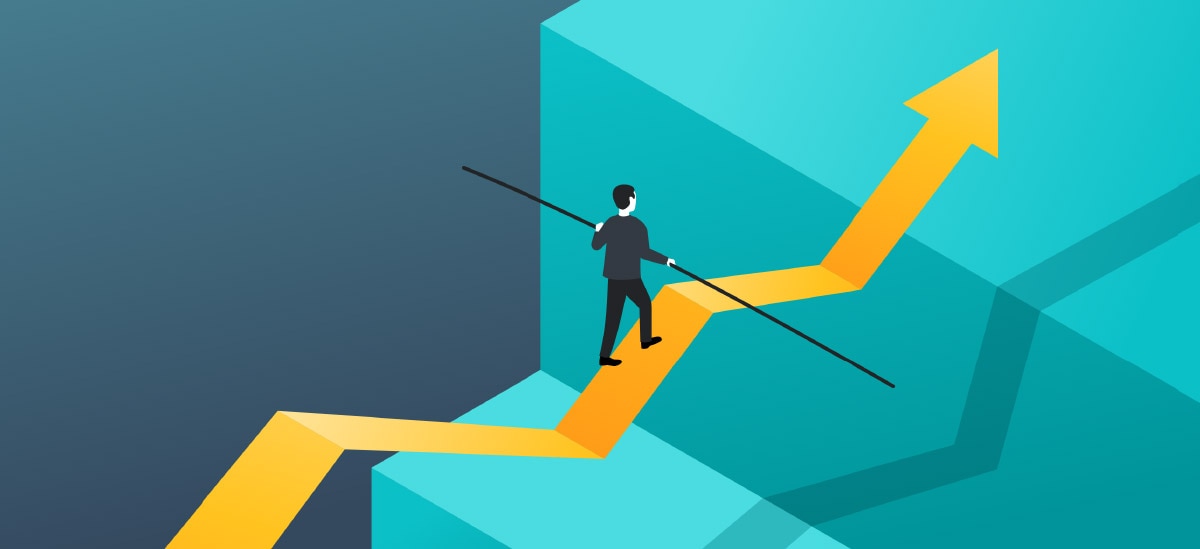
It’s a delicate, difficult task the Federal Open Market Committee (FOMC) has: Raising interest rates enough to slow economic growth and reduce inflation, but not enough to cause a recession — a widespread, significant decline in economic activity.
Since March 2022, the fed funds rate has risen three times, with additional hikes forecasted by PNC economists through the rest of this year. How will consumers and investors be impacted by these interest rate hikes? Is a recession avoidable or inevitable? PNC Chief Economist Gus Faucher and Asset Management Group Chief Investment Officer Amanda Agati provide their insights.
What do these rate increases mean for credit cards, car loans and student loans?
Faucher: Increases in the fed funds rate most directly affect short-term interest rates such as the prime rate. So, interest rates on shorter-term loans, such as two- or three-year loans, will rise. Interest rates also will go up for variable-rate loans that are usually tied to some underlying market interest rate. Consumers with revolving debt on credit cards can expect those rates to rise.
For fixed-rate student loans that already have been issued, interest rates will not change. Rates will go up most for student loans tied to short-term interest rates.
What about for those considering 30-year fixed mortgages, home equity lines of credit and adjustable-rate mortgages?
Faucher: Thirty-year fixed-rate mortgages are less tied to short-term rates like the fed funds rate (an overnight interest rate), and more to longer-term rates and long-term expectations for inflation and economic growth.
Short-term rates are more important drivers of interest rates on home equity lines of credit and adjustable-rate mortgages. So these rates will respond more quickly to increases in the fed funds rate.
The Fed’s plans to reduce its balance sheet has driven up the 30-year fixed rate in 2022. In the initial recovery from the pandemic, the Fed bought long-term Treasurys and mortgage-backed securities to reduce long-term interest rates and make borrowing less expensive, including for home purchases. Now that the economy is recovering and inflation is high, the Fed has stopped buying these securities. This has pushed rates on 30-year mortgages up throughout 2022, increasing the cost of buying a home.
Do rate increases make savers happy?
Faucher: Higher interest rates throughout the economy will lead to higher rates of returns for savers, including on savings accounts and certificates of deposit. But higher interest rates have historically weighed heavier on returns for riskier assets, such as stocks and cryptocurrencies, because higher rates make it more expensive to borrow and invest in these riskier markets.
Could the Fed trigger a recession by raising rates too high, too fast?
Faucher: It’s a difficult balancing act. Fed interest rate policy to combat inflation has contributed to many U.S. recessions. And risks of a central bank misstep are especially high right now, given that inflation is at a 40-year peak, the labor market is very tight and consumer demand remains very strong. The Russian invasion of Ukraine has made the Fed’s job even tougher, by raising inflationary pressures in the U.S. economy and weighing on U.S. economic growth through higher energy and food prices and slower growth in Europe.
Recession is unlikely in 2022, given current solid fundamentals, especially the strong labor market. But the probability of recession over the next couple of years is around 40%, about double what it was before the Russian invasion of Ukraine.
How will the financial markets react to the Fed’s aggressive interest rate actions?
Agati: Investors have been facing a perfect storm of macro headwinds this year, with changes in Fed policy being by far the biggest. What’s making this year so unusual is that the markets are taking the Fed’s forward guidance very seriously — in past cycles, we would have expected the market to react to one meeting at a time and methodically follow the dot plot, but all of a sudden, this year the markets have decided to adjust to months of Fed policy changes all in one shot.
Everything is happening at warp speed this cycle — from the onset of the pandemic, to the three days where the market bottomed in spring 2020, to the flood of policy accommodation, to the record-breaking market rally and back into bear market territory again.
What’s the big-picture advice you’re giving to PNC’s investment clients now?
Agati: We’re in the slowing expansion phase of the cycle, which is always tricky because investors start to think a recession is looming right around the corner and the tendency is to get too bearish or too defensive too soon. When we look under the hood, earnings continue to be quite solid and the labor market is incredibly strong. But it’s certainly hard to see much upside for the stock market other than trading rallies in the short run. We have to wait for inflation to peak and/or for the Fed to complete its tightening for the market to be able to refocus on the fundamentals or find another positive catalyst to drive a rally. In the meantime, we think high volatility is going to continue to dominate the summer months and things will stay pretty choppy.
Pockets of opportunity do exist, but it doesn’t pay for investors to stray too far from strategic targets in such volatile times. We’re still playing some portfolio defense in terms of positioning, but we do believe there will come a point in the not-too-distant future where we might start to whittle away at adding more equity exposure to portfolios.



